Speech Therapy Dream Team
NBA player Michael Kidd-Gilchrist talks with CSD students about the important bond between a speech therapist and a person who stutters.
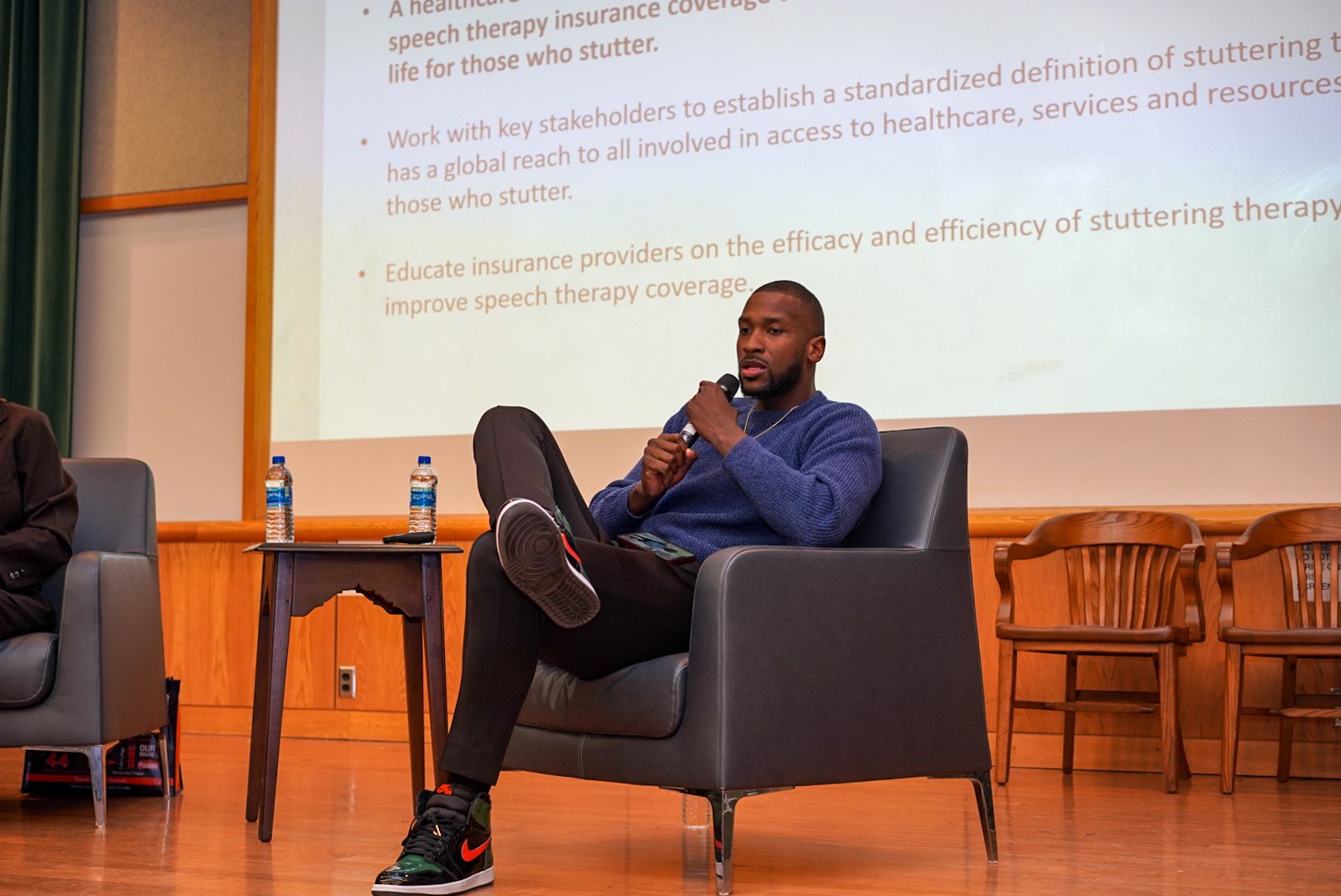
Students walking into Grant Auditorium for CSD 450/650 Clinical Seminar last semester saw a celebrity instead of their usual professor. NBA player Michael Kidd-Gilchrist was visiting the class to give the students a unique perspective on both their profession and on their future patients. His visit to Syracuse University also included a tour of the Department of Communication Sciences and Disorders' Gebbie Speech-Language-Hearing Clinic and Professor Victoria Tumanova’s stuttering research lab.
Although he is best known for his athletic abilities—he most recently played for the Dallas Mavericks—Kidd-Gilchrist was here on an educational mission. As a person who stutters, he wanted the practitioners of tomorrow to understand the experiences and needs of those who stutter today.
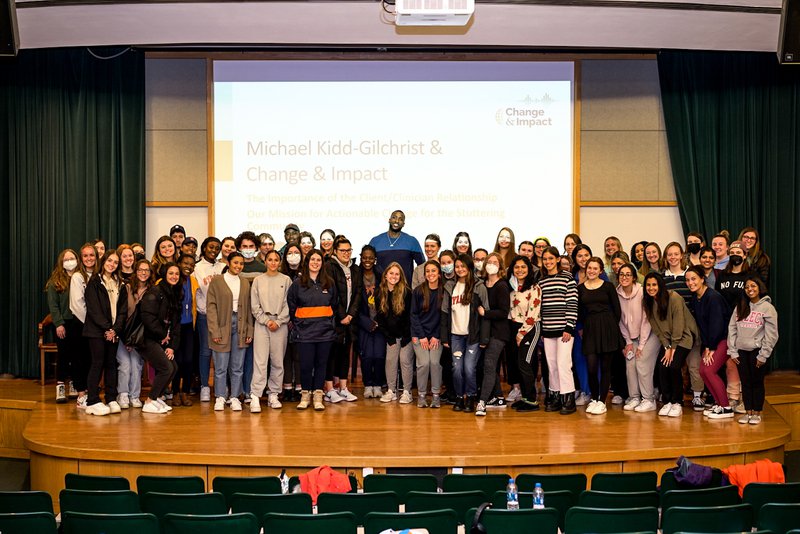
Michael Kidd-Gilchrist (center, back row) with students from the CSD 450/650 Clinical Seminar.
Like many of us during the first year of the pandemic, Kidd-Gilchrist spent time thinking about his values and his life. While inside the NBA bubble in 2020, he decided to use his personal journey as a catalyst to help others. Kidd-Gilchrist then started his “Change & Impact” foundation as a means of sharing his unique perspective with the next generation of speech therapists and to also advocate for better insurance coverage for speech therapy for stuttering. Now, he regularly speaks at colleges and universities that offer speech-language pathology and audiology programs and also speaks at camps and conferences related to stuttering.
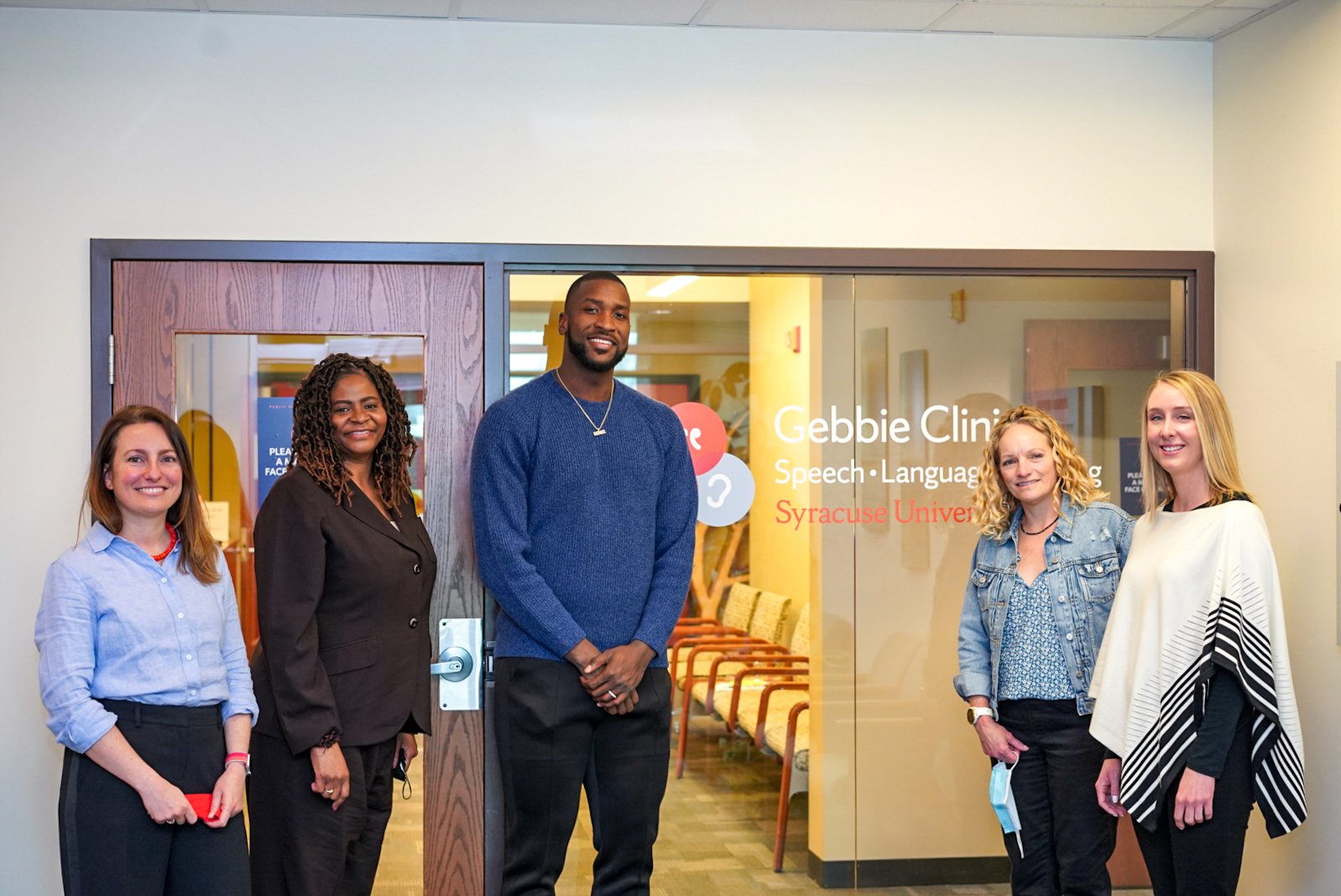
At an earlier event, Kidd-Gilchrist noted, “At first, I didn’t want anyone to know about my stutter. When I entered speech therapy, I told my therapist that I didn’t want anyone to know. Today, I want to share my story and see my stutter as a gift that I have embraced because now I can help others, including those who are getting into the field of speech-language pathology.”
Indeed, Meaghan Doyle ’23, a CSD and neuroscience major, gained a different and helpful perspective on stuttering from his talk in Syracuse. “Everyone has their ‘something,’ with [Michael’s] ‘something’ being stuttering,” Doyle says. “I liked how he said that that it doesn’t define you.”
Erica Bliss, a senior dual major in CSD and psychology, emphasized the importance of Kidd-Gilchrist’s advocacy as an important part of stuttering treatment. Clients who stutter do not always have the access and support they need to succeed. “We need to help grow [these services],” she explains. She plans to apply this perspective throughout her career to help her future clients adequately reach their goals.
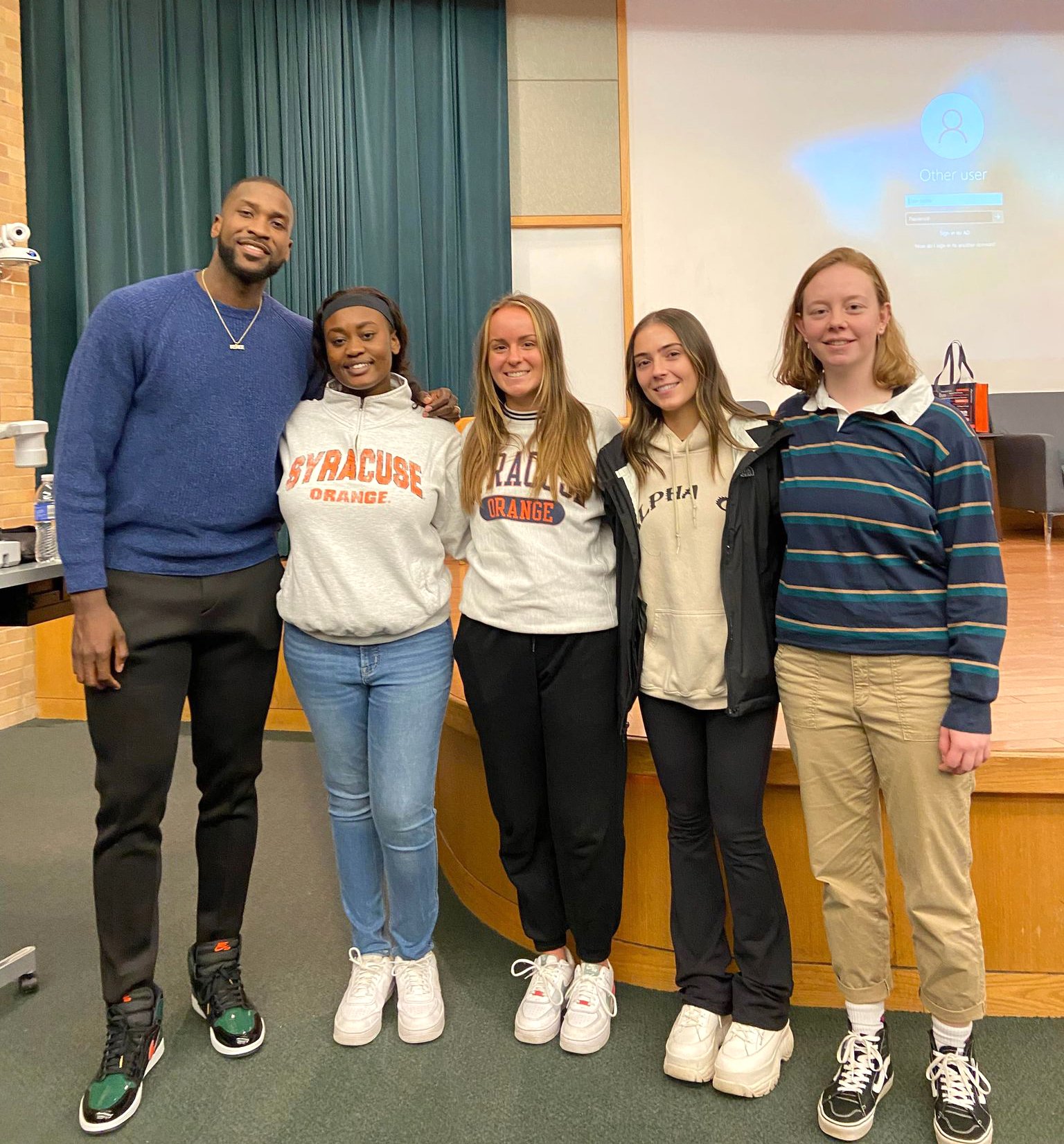
Like the many other CSD students in attendance, Brittnee Jean ’23 appreciated Kidd-Gilchrist’s vulnerability when talking about his experience with stuttering. She hopes to be able to achieve a similar relationship with her future clients. “My favorite part was when Michael said he felt like [his speech-language pathologist] wasn’t trying to change [him],” says Jean.
At the same time, Kidd-Gilchrist acknowledged that stuttering presents significant challenges for those affected by it, and it was important to him that people who stutter have access to speech therapy. He also spoke about the importance of clinician-client relationship to the success of the therapy process.
“Being able to truly listen and have empathy for your client is instrumental in building a good therapeutic relationship,” says Victoria Tumanova, associate professor of communication sciences and disorders, who arranged Kidd-Gilchrist’s visit. “Michael spoke movingly about his personal experience in speech therapy and what made it a success. A strong bond with his speech therapist helped him go from avoiding talking to speaking up. Hearing that has inspired and motivated our students to go out and do the same with their future clients.”
A future practitioner agreed. Thanks to Michael Kidd-Gilchrist’s courage in sharing his story, CSD major Chloe Crowley notes, “As speech-language pathologists, we [will] have the power to change someone’s life for the better.” Working together, the client and the therapist can be the best kind of dream team.
Michael Kidd-Gilchrist Visits Syracuse University
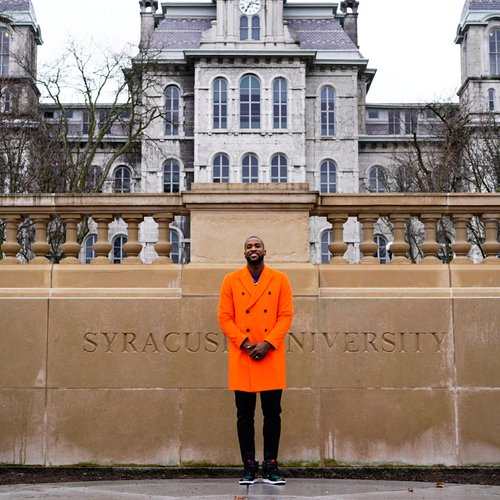
Kidd-Gilchrist standing in front of the Hall of Languages.
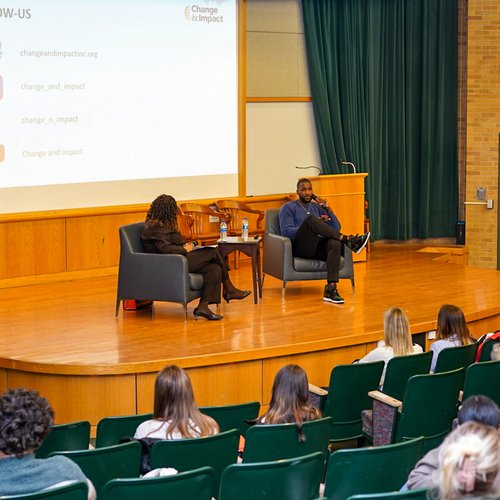
Michael Kidd-Gilchrist talks with students about the importance of speech therapy to those who stutter.
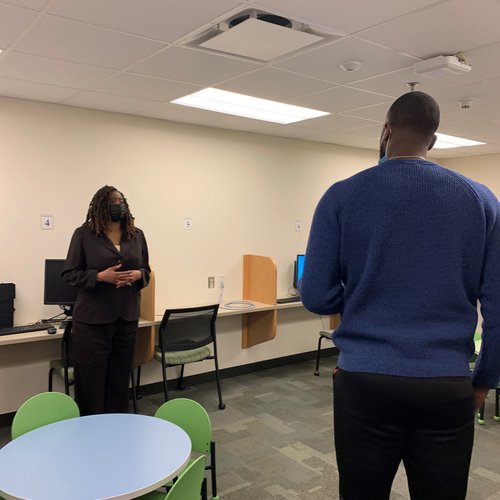
Kidd-Gilchrist, right, speaking with Associate Teaching Professor Anita Lightburn at the Gebbie Speech-Language-Hearing Clinic.
